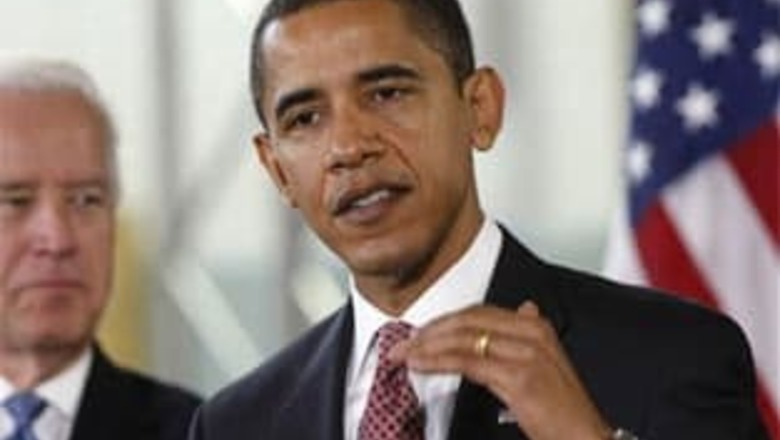
views
New Delhi: US Secretary of State Hillary Clinton arrives in India this week against the backdrop of New Delhi's strained relations with neighbour Pakistan, the global slowdown and the war in Afghanistan.
Where do US-India ties stand?
New Delhi and Washington are enjoying some of their best-ever relations--thanks in part to the former US president, George W Bush, and Prime Minister Manmohan Singh.
Perhaps the biggest leap forward came when both leaders trumped domestic critics to sign a landmark civilian nuclear deal in 2008, worth billions of dollars and ending a 30-year ban on nuclear commerce with India.
Trade has blossomed and years of market reforms have helped India's information technology and outsourcing sectors feed into the U.S. economy.
Always friends?
No. In the Cold War era, India was a member of the Non-Aligned movement that in theory was independent from the United States and the Soviet Union.
In practice, India bought most of its defence equipment from the Soviets and a chunk of its economy, until liberalisation began in earnest in the early 1990s, was under state control.
New Delhi refused to sign the Non-Proliferation Treaty which left it in nuclear isolation--including from the United States--for decades. Some loud voices in the US Congress said Bush's nuclear deal had let India off the hook.
Many Indian politicians who grew up in the Cold War era were suspicious of US global dominance--a legacy of mistrust evident in the Indian left's failed attempt to block the pact.
The Pakistan angle
Some in India fear the United States prioritises Pakistan-- at New Delhi's expense. President Barack Obama needs Pakistan to focus on fighting insurgents in Pakistan and Afghanistan as Pakistan's relations with India have taken a nosedive.
India, which accuses its neighbor of complicity in the Mumbai militant attacks, suspects the United States may let Pakistan off lightly in tackling anti-India militants to keep its ally onside.
There is also a school of thought that, to stop Pakistan from being distracted with India, the two rivals must be coaxed into resolving a dispute over Kashmir.
India sees the fate of the divided region as its own business, and any perceived attempt by the Obama administration to meddle could sour ties.
But Singh and his Pakistan counterpart are set to meet in Egypt this week on the fringes of a summit, which could pave the way for new talks.
Trade disputes
India and the United States were at the center of a tariff dispute that brought the Doha world trade talks grinding to a halt in 2008, as India worried an unchecked flood of cheap imports would threaten its millions of poor farmers.
Both sides more recently made the right noises on reaching a consensus. India's trade minister went as far as to say the " "impasse has been broken," but later tempered his remarks.
July's G8 summit may have been another boost to more open trade, as leaders pledged to conclude Doha by 2010.
Protectionism?
Obama took office in the thick of a global financial crisis and amid fears the slowdown would bring greater protectionism.
Much was made in the Indian media of an Obama attack on companies that ship jobs and profits abroad in which he said they pay lower taxes in Bangalore, India, than in Buffalo, New York.
But India's growing economy, rising status and huge untapped markets will likely remain too tempting a prospect for the United States to turn back the clock.
Clinton may have calmed Indian nerves and set the scene for her India visit when she said in June that bilateral ties needed an "upgrade" and the slowdown was no excuse to "fall back on protectionism."
On the other hand, the WTO chief tempered optimism after the G8 by saying few countries had dismantled dangerous protectionist barriers as the financial crisis continues to bite.



















Comments
0 comment